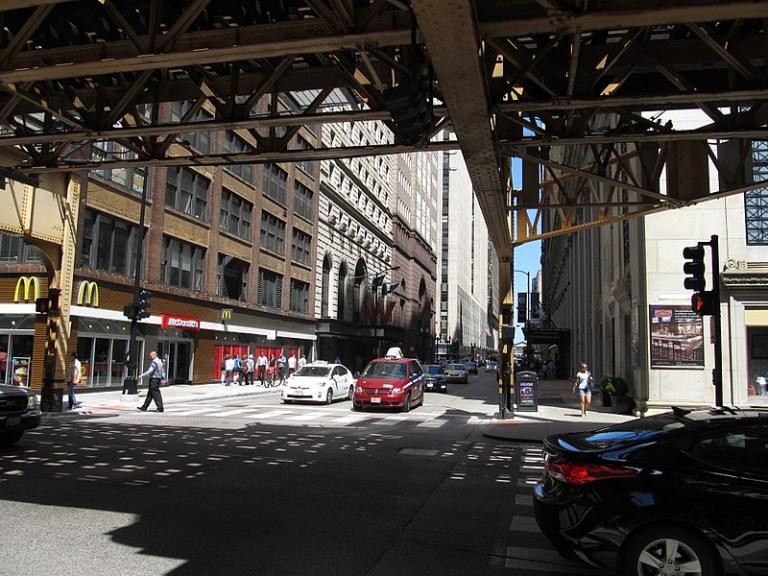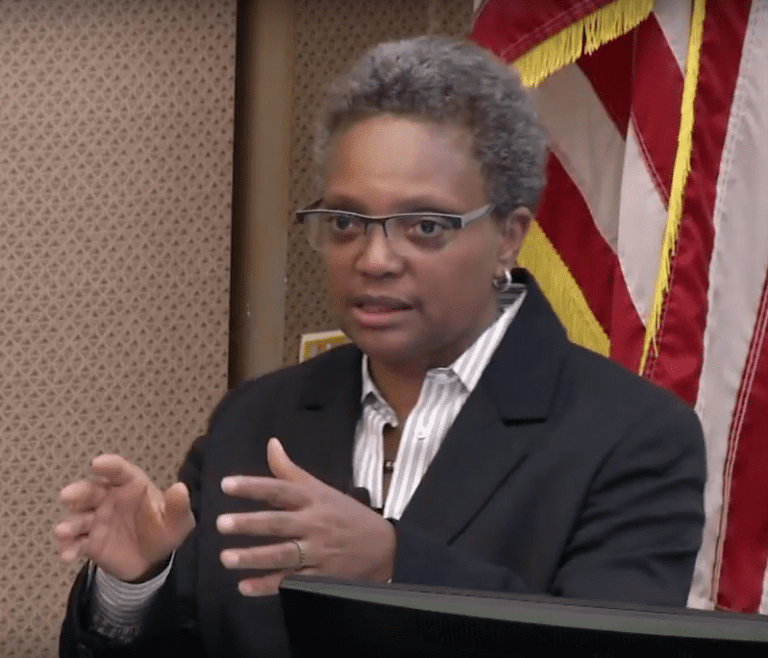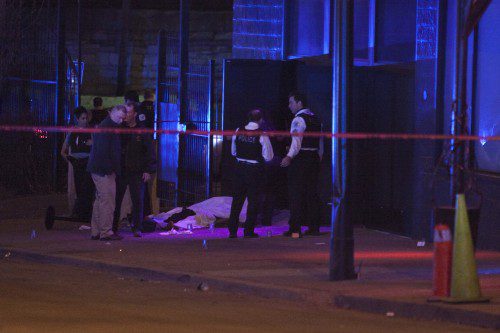
Chicago had a mayoral election last night.
It was a very strange election (yes, 14 candidates, and the top two head into a runoff, and a ranked-choice vote would have really been far preferable to this business of candidates dividing up constituencies), and the outcome was, to me at least, unexpected:
- Lori Lightfoot, 17.5% of the vote,
- Toni Preckwinkle, 16%,
- Bill Daley, 14.7%,
- Susana Mendoza, 9%,
- Amara Enyia, 8%,
- Jerry Joyce, 7%,
- Gery Chico, 6%,
and a host of others trailing them.
I’m sure there will be plenty of analysis on which candidates took votes from each other, how the outcome might have been different if there had fewer candidates, say, one candidate with the mantle of “reform,” one claiming to be the “progressive,” and so on. Or maybe there won’t be, I don’t know. The media seems too focused, for the time being, on trumpeting the election as historic: “first black woman! potentially first LGBTQ+ person (Lightfoot’s characterization of herself)!”
And, given the choice between someone deeply entangled with Chicago’s Machine politics, and someone who isn’t, all other things being equal, of course, the non-entanglee is the better choice. But that doesn’t mean that Lightfoot is a great candidates.
I admit that I hadn’t been following her campaign; when I wrote my article at Forbes on the candidates and pensions, she was so low in the polls that her opinion didn’t seem worth profiling. But when I watched the Trib candidate forums, I did take notes on what she said in response to the question that was posed to each candidate, how they will fund the upcoming hikes in required contributions for city pensions:
revenue. “you can’t just say an answer.” Settlement $ for police misconduct. Workers’ comp. get rid of city clerk/treasurers. Pension fund: consolite administrative services and investment services. Future employees – pensions are a promise. Add a Tier 3 (check the report – has the tier 3 per the report not actually been implemented? No tier 3 for police & fire?)
Yeah, that’s verbatim. “Worker’s comp” clearly refers to the claim which multiple candidates have made that there’s so much waste in the worker’s comp system, in which the city’s costs are far higher than peer cities, that reforming the system could free up some funding to spend elsewhere. Not sure how settlement money is a revenue source, unless she meant that under her management, police will behave themselves, so that the city will save money — but I would expect that even in a perfect world, there’ll be a long tail as the city is obliged to respond to past allegations. What really irritated me was her mention of a Tier 3, which suggested that she hadn’t given any of this any thought, since there already is a Tier 3 for the largest plan, and it’s a raw deal for participants.
Preckwinkle, on the other hand, had a few more concrete things to say but her biggest pitch was, paraphrased, “look, I’ve been Cook County Board President, so I have experience figuring out how to make budgets work.”
But, once you move beyond the issue of how closely tied they are to corruption, and look at their proposals with respect to what ails the city, well — they look pretty indistinguishable to me. Each of them promises to fix schools, support LGetc. causes, promote economic development in poor communities, and so on. Preckwinkle promises a $15 minimum wage no later than July 2021, 100% “clean energy” by 2035 as well as fully-electric city vehicles and CTA buses, an elected school board, and increased lending/grants for small businesses in underserved communities, among other promises. Lightfoot’s plan, in contrast, promises an electric bus fleet by 2030 and 100% renewable energy by 2025, and — well, actually I can’t find any clear points of contrast between them. Most of their proposals sound well-intentioned, and some of them sound reasonable enough, such as removing red tape around the building of housing to improve its affordability, or eliminating the aldermanic fiefdoms that make it hard for a small business to expand — though, let’s face it, if these seemingly-common sense measures are such low-hanging fruit, why would Emanuel not have dealt with it?
At the same time, it troubles me greatly that proposal after proposal costs money, yet in neither candidate’s website is there any recognition of the fact. Do they believe that balancing the budget is simply a technocratic exercise that voters should trust them to do? Are the candidates simply taking the approach that these are “investments” which will “pay for themselves” with increased tax revenue down the road and, hence, no need to calculate any expenditures in the meantime? Or are they of the opinion that when an action is so obviously needed, is should be undertaken, and that caring about costs and accounting is unjust?
So I know I’m not a Chicagoan. And I know there were worse possible outcomes (Medoza v. Preckwinkle? yikes!) but it’s still disappointing.
Update: blogger Mary Pat Campbell wrote up what she’s gathered on Lightfoot and Preckwinkle’s comments on pensions.
Image: https://commons.wikimedia.org/wiki/File:Wells_and_Adams_Street,_Chicago_Loop,_Chicago,_Illinois_(9181614950).jpg; By Ken Lund from Reno, Nevada, USA [CC BY-SA 2.0 (https://creativecommons.org/licenses/by-sa/2.0)], via Wikimedia Commons










